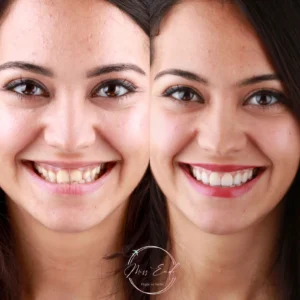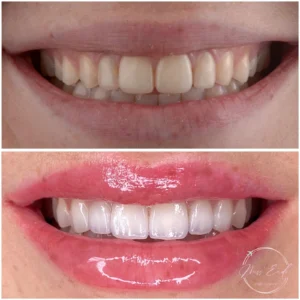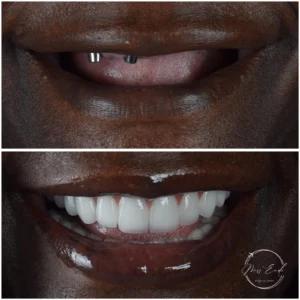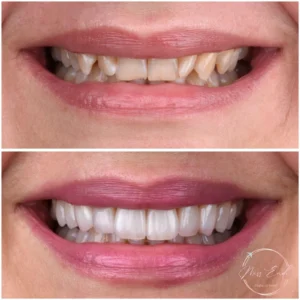
Dentures are removable prosthetic devices designed to replace missing teeth and restore both functionality and aesthetics to your smile. They are a popular solution for individuals who have lost some or all of their teeth due to aging, gum disease, tooth decay, or injury. Dentures not only improve your ability to chew and speak properly but also enhance facial appearance by providing support to the lips and cheeks, preventing the sunken look that can occur with tooth loss.
There are two main types of dentures: full dentures and partial dentures. Full dentures are used when all the teeth are missing, while partial dentures are suitable when only a few teeth need to be replaced. Dentures are custom-made to fit your mouth comfortably and securely, ensuring they match your natural bite and smile.
Modern advancements in dentistry have greatly improved the design and materials used in dentures, making them more natural-looking and comfortable than ever before. In some cases, dentures can be combined with dental implants to provide extra stability, offering a hybrid solution that prevents slipping and improves overall function.
With proper care, dentures can last for many years, providing a practical and effective way to restore confidence in your smile and daily life. Regular dental check-ups are essential to ensure your dentures remain in good condition and fit well as your mouth naturally changes over time.


Benefits of Dentures
💫Dentures allow you to chew and speak properly, making it easier to enjoy your favorite foods and communicate clearly. They help restore normal oral function, ensuring you can eat a varied diet without discomfort or difficulty.
💫 Dentures fill the gaps left by missing teeth, supporting your facial structure and preventing the sunken look that can occur after tooth loss. They are custom-made to look natural, enhancing the appearance of your smile and boosting your confidence.
💫Compared to other restorative options like dental implants, dentures are often a more cost-effective way to replace multiple missing teeth. They offer a reliable, affordable solution for restoring your smile and function.
💫Modern dentures are carefully crafted to fit comfortably in your mouth. Advances in dental materials and technology ensure that dentures look natural and feel secure, allowing you to wear them confidently throughout the day.
💫Dentures offer a non-invasive alternative to surgeries such as dental implants or bridges. They can be fitted without the need for invasive procedures, making them a great option for individuals who prefer a quicker and less complex solution.
💫Dentures are designed to be easily removable, allowing for thorough cleaning and maintenance. This makes it simpler to maintain oral hygiene and ensures that the dentures can be adjusted or repaired if necessary.
💫Whether you need a full set of dentures or a partial denture to replace just a few missing teeth, dentures provide a versatile option that can be tailored to meet your specific needs.
By choosing dentures, you can regain the functionality, comfort, and confidence that come with a complete, natural-looking smile.


Disadvantages of Dentures Compared to Dental Implants
While dentures offer an effective solution for missing teeth, they come with certain disadvantages when compared to dental implants. Here are some key differences:
1.Stability and Security: Dentures, especially traditional ones, can sometimes slip or shift in the mouth, particularly while eating or speaking. This can lead to discomfort or embarrassment. Implants, on the other hand, are anchored directly into the jawbone, providing a secure and permanent solution that feels more like natural teeth.
2.Bone Loss Over Time: One of the major drawbacks of dentures is that they do not prevent bone loss in the jaw, which naturally occurs after tooth loss. Over time, the jawbone may shrink, leading to a change in the fit of the dentures and the need for frequent adjustments. Implants help stimulate the jawbone, preventing bone deterioration and maintaining facial structure.
3.Comfort: Some people may find dentures uncomfortable, especially in the beginning, as they can cause irritation or sore spots in the mouth. Implants, being fixed in the jaw, typically feel more natural and comfortable, as they mimic the structure and function of real teeth.
4. Maintenance: Dentures require daily removal and cleaning to maintain hygiene and prevent gum infections. Implants, however, are cared for just like natural teeth with regular brushing, flossing, and dental check-ups, making them lower maintenance in the long run.
5.Longevity: Dentures have a shorter lifespan than implants. They may need to be relined, repaired, or replaced every 5 to 10 years due to wear or changes in the mouth. Implants, when properly maintained, can last a lifetime, offering a more durable solution.
6.Functionality: Although dentures improve chewing ability, they generally don’t match the strength and efficiency of implants. Implant-supported teeth function more like natural teeth, allowing patients to eat a wider variety of foods with greater ease and confidence.
7.Speech: Dentures, especially full dentures, can sometimes affect speech initially, as the mouth adjusts to the new appliance. Implants, since they are fixed, don’t usually interfere with speaking once they are integrated.
8.Aesthetic Considerations: Dentures can sometimes look less natural than implants, as they sit on top of the gums, whereas implants are embedded in the jawbone, offering a more natural appearance and feel.
Although dentures are a more affordable option, implants offer superior stability, comfort, and long-term benefits, making them a preferred choice for many patients seeking permanent tooth replacement.


Who Is Not Suitable for Dentures?
While dentures are a common solution for replacing missing teeth, they may not be suitable for everyone. Certain individuals may face challenges or limitations that make dentures less ideal. Here are some factors that could make someone a less suitable candidate for dentures:
1. Severe Bone Loss: Individuals with significant bone loss in the jaw may find it difficult to achieve a secure fit with dentures. Without adequate bone support, dentures can become loose or uncomfortable, leading to poor functionality and fit.
2. Gag Reflex Sensitivity: Some people have a strong gag reflex, which can make wearing dentures uncomfortable or even unbearable, particularly full dentures that cover the roof of the mouth. This sensitivity can prevent the patient from adjusting to dentures over time.
3. Poor Gum Health: For dentures to fit well, the gums need to be in good condition. Individuals with advanced gum disease or chronic infections may not be suitable for dentures, as the gums may not be able to support them properly, leading to discomfort and potential complications.
4. Difficulty with Maintenance: Dentures require consistent daily care, including removal for cleaning and proper storage. People who struggle with routine care, whether due to age, physical limitations, or cognitive conditions, may find it challenging to maintain proper denture hygiene, increasing the risk of gum disease or infections.
5. Allergic Reactions: In rare cases, some individuals may be allergic to the materials used in dentures, such as acrylic or metal. This can cause irritation, discomfort, or allergic reactions, making dentures unsuitable for these patients.


6. Psychological Discomfort: Some individuals may find dentures psychologically uncomfortable due to their removable nature or the perception of being “false teeth.” They may feel self-conscious or dissatisfied with the aesthetics or feel of dentures, even when fitted well.
7. Jaw Joint Issues (TMJ): People who suffer from temporomandibular joint (TMJ) disorders may experience difficulties adapting to dentures. The pressure of wearing dentures can sometimes worsen TMJ symptoms like pain or restricted jaw movement.
8. Desire for Permanent Solutions: Individuals looking for a more permanent, long-term solution may not find dentures suitable, as they are removable and typically require replacement or adjustment over time. In such cases, dental implants or implant-supported dentures might be a better option.
For those who may not be ideal candidates for traditional dentures, alternatives such as implant-supported dentures, dental bridges, or dental implants may provide a more comfortable, stable, and long-lasting solution.

Premium Dental Care From Turkey’s Leading Specialists in Istanbul and Antalya

Miss Endo
Free Consultations and Aftercare are Available in Los Angeles Through Miss Endo





